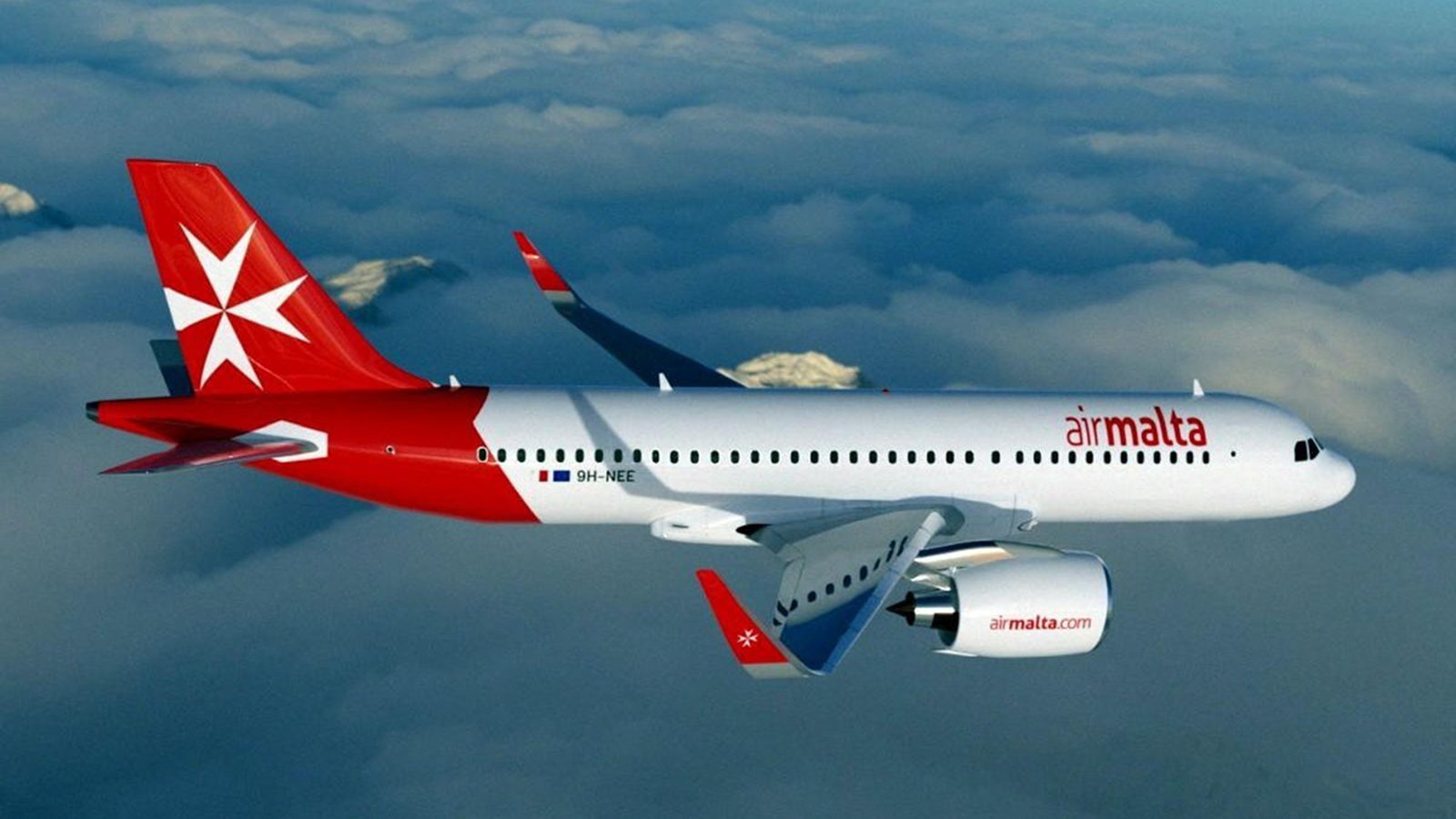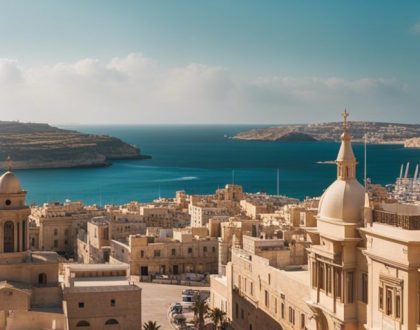Air Malta’s Early Retirement Financial Burden

The government of Malta is grappling with the financial burden imposed by the early retirement schemes for Air Malta employees, which are projected to cost an astonishing €92.5 million in 2023. This colossal expenditure represents the lion’s share of a staggering €97 million increase in the budget allocation for the Office of the Prime Minister (OPM) for the current year. Let’s delve into the intricacies of this significant budget shift and explore the underlying reasons behind it.
Rising Costs and the Office of the Prime Minister’s Budget
The Office of the Prime Minister, initially earmarked with a budget of €43 million for the year 2023, now finds itself with an expanded financial responsibility, as its total budget allocation for recurrent spending has surged to €140 million. This threefold increase from the initial allocation is raising eyebrows and questions among budget analysts and taxpayers alike.
The surge in budget allocation for the OPM can be attributed to several key factors, with the primary one being the substantial costs incurred by the early retirement schemes for Air Malta employees. This financial commitment has been further exacerbated by increased OPM salary costs and the funds required for hosting international conferences, all of which were not initially anticipated.
International Conferences and the MED 9 Meeting
A spokesperson for the Office of the Prime Minister clarified that an additional €2 million was allocated for international conferences, with a significant portion directed towards hosting the notable MED 9 meeting. The spokesman highlighted that the actual costs incurred for these conferences were considerably lower than the allocated budget, and these variances would eventually be reflected in the final budget estimates.
Early Retirement Schemes: The Primary Cost Driver
The Office of the Prime Minister’s spokesperson elaborated that the predominant factor contributing to the skyrocketing budget was the early retirement schemes for Air Malta employees. These schemes had previously fallen under the purview of the Finance Ministry but were transferred to the Prime Minister’s office due to their administration by RSSL Limited, a state-owned entity.
The Role of RSSL Limited
RSSL Limited, a long-standing player in the Maltese state-owned landscape, has played a central role in managing and implementing the early retirement schemes for Air Malta employees. Notably, the entity has been helmed by Lawrence Mizzi, the father of former Tourism Minister Konrad Mizzi. The history of Air Malta’s financial challenges and its eventual trajectory under Minister Konrad Mizzi’s leadership adds a layer of complexity to the current situation.
Air Malta’s Troubled Journey and Its Future
During his tenure as the Minister of Tourism, Konrad Mizzi claimed to have steered Air Malta towards financial stability, promising to open up new routes, including long-haul destinations like New York’s JFK airport. However, the recent announcement by Finance Minister Clyde Caruana took the nation by surprise, as it was revealed that Air Malta would be dissolved, making way for the establishment of a new airline.
The rejuvenated airline, infused with fresh capital, will retain Air Malta’s existing fleet of eight Airbus A320 aircraft. Nevertheless, it will operate on a more streamlined model, serving 17 destinations and discontinuing unprofitable routes. This marks a significant departure from the airline’s operations in 2019 when it flew to a total of 37 destinations.
Staff Reduction and Golden Handshakes
In an effort to restructure and reduce costs, Air Malta has downsized its workforce over the past two years. The employees who were released as part of this restructuring were offered generous golden handshakes, providing them with financial security. Others were absorbed into the public service with their salaries intact, ensuring that their livelihoods were safeguarded amidst the airline’s transformation.
FAQs:
Why have the costs of early retirement schemes for Air Malta employees become a significant concern for the government?
The early retirement schemes for Air Malta employees have raised alarm due to their substantial financial burden, amounting to €92.5 million in 2023. This has put pressure on the government’s budget, necessitating an increase in the allocation to the Office of the Prime Minister.
What led to the considerable expansion of the Office of the Prime Minister’s budget for 2023?
The Office of the Prime Minister’s budget for 2023 experienced a dramatic increase, primarily due to the costs associated with the early retirement schemes for Air Malta employees. Other factors contributing to the budget expansion include elevated salary costs for OPM and funds required for hosting international conferences.
Can you elaborate on the international conferences that are impacting the budget allocation for the Office of the Prime Minister?
The budget includes an additional €2 million for international conferences, with a significant portion allocated for hosting the MED 9 meeting. Notably, the actual costs incurred for these conferences have been lower than the allocated budget.
Why were the early retirement schemes for Air Malta employees transferred from the Finance Ministry to the Office of the Prime Minister?
The transfer of these schemes was motivated by the involvement of RSSL Limited, a state-owned entity, in their administration. RSSL Limited’s role in managing these schemes necessitated the transfer to the Prime Minister’s office.
Who is Lawrence Mizzi, and what role does he play in the management of Air Malta’s early retirement schemes?
Lawrence Mizzi, the father of former Tourism Minister Konrad Mizzi, has been at the helm of RSSL Limited, the state-owned entity responsible for managing and implementing the early retirement schemes for Air Malta employees.
What is the current status of Air Malta, and what does the future hold for the airline?
Air Malta is set to be dissolved, making way for a new airline. The rejuvenated airline, bolstered by fresh capital, will retain Air Malta’s existing fleet of eight Airbus A320 aircraft. It will operate on a more streamlined model, serving 17 destinations while discontinuing unprofitable routes.
How have Air Malta’s workforce been affected by the airline’s restructuring?
Over the past two years, Air Malta has undergone significant downsizing, reducing its workforce from just over 1,000 employees. Those employees who were let go were offered generous golden handshakes, ensuring financial security. Others were absorbed into the public service with their existing salaries intact.
What led to the decision to shut down Air Malta and create a new airline?
The decision to dissolve Air Malta and establish a new airline was announced by Finance Minister Clyde Caruana. It was made to address the financial challenges faced by Air Malta and to pave the way for a more sustainable and cost-effective aviation model.
How many destinations will the new airline, replacing Air Malta, serve in comparison to its predecessor?
The new airline, following the dissolution of Air Malta, will serve 17 destinations, which is a significant reduction from the 37 destinations operated by Air Malta in 2019.
What are the broader implications of the financial challenges faced by Air Malta and the subsequent government intervention?
The financial challenges and restructuring of Air Malta have broader implications for the country’s aviation industry, the labor market, and the government’s fiscal policies. These developments are being closely monitored by stakeholders and the public, given their far-reaching effects.
Recommended Posts

Overview of Business Finance in Malta
May 17, 2024

Malta’s iGaming Frontier – Best Brands
May 17, 2024

How to Start Your Malta Business Journey
May 17, 2024




